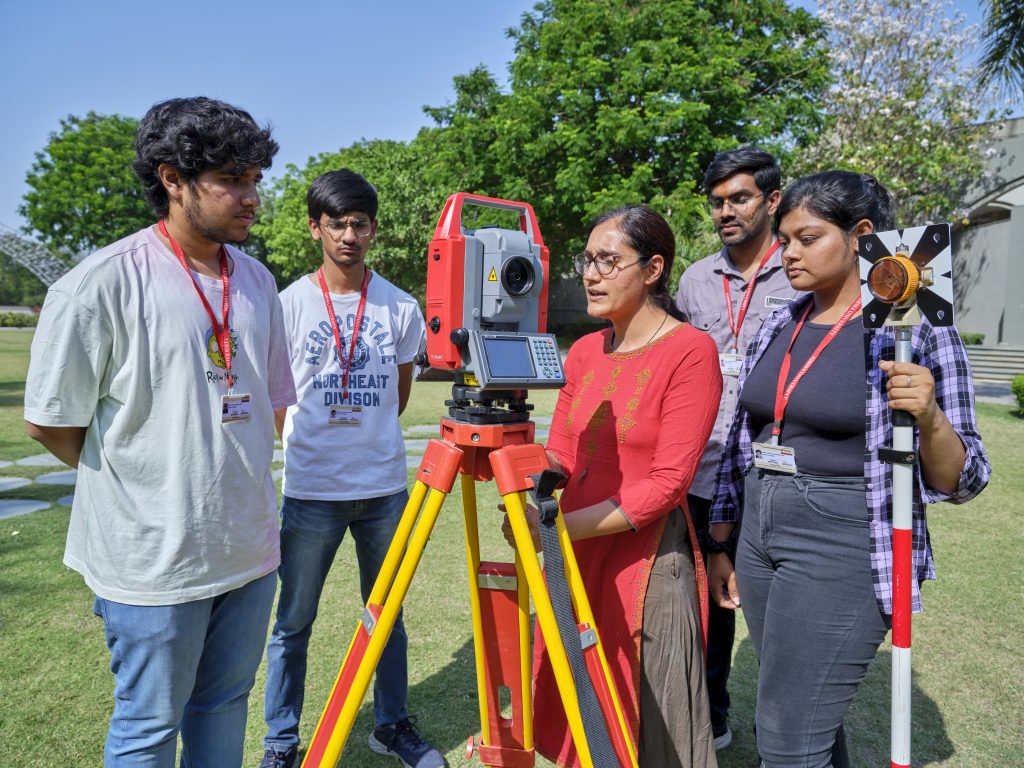
Departments offers BTech programme in Civil Engineering, MTech programme in CASAD (Computer Aided Structural Analysis and Design) & CTM (Construction Technology and Management) and Ph. D. programme. Department focuses on imparting industry relevant training with strong theoretical concepts to students during classroom teaching, laboratory sessions, projects, competitions, value added courses, expert lectures, site visits, practical training, etc. BTech students are placed on construction project sites/consultancy firms/research organisations for entire duration of final semester. MTech students are placed in structural engineering firms/R&D organisations for 6-8 weeks of practical training. The students carry out major project for one year duration at the department/research organisations/industry. This exposure helps the students to acquire the required professional skills.
Department has a team of dedicated faculty having specialisation in diverse areas. Faculty members regularly attend conferences, workshops, short term training programmes and continuing education programmes to strengthen teaching-learning practices.
The department has successfully completed number of research projects funded by national and international funding agencies i.e., SAC-ISRO, ISRO-RESPOND, DST-SERB, GUJCOST, IC-IMPACTS, European Space Agency and Institutions of Engineers (India). The research outcomes of many funded projects results into development of research capabilities of the department.
The department is actively involved in providing diverse consulting services in Civil Engineering. Testing assignment from regional industries is a routine activity accomplished with well-established laboratory set-ups.
Department has established strong network with Professionals, Peers from Academic & Research organisations and Alumnus, who supports various activities like site visits, expert lectures, practical training, projects, placements, consultancy and research.

To be known as an internationally acclaimed centre in Civil Engineering for its excellence in education, technological and sustainable innovation and contribution for the betterment of the society.

Undergraduate engineering programmes are designed to prepare graduates to attain the following program outcomes:
A graduate of Civil Engineering Programme will have an ability to: